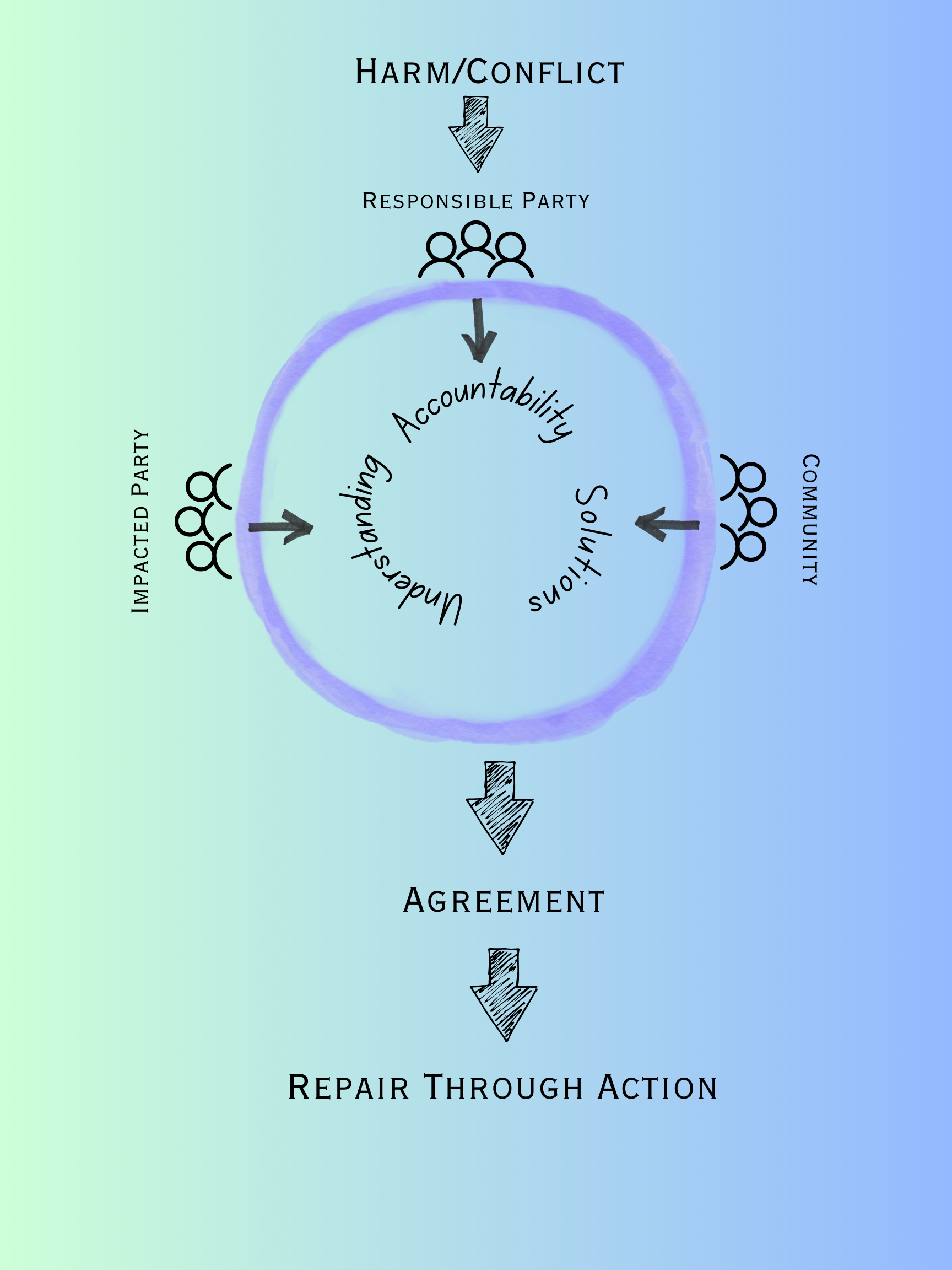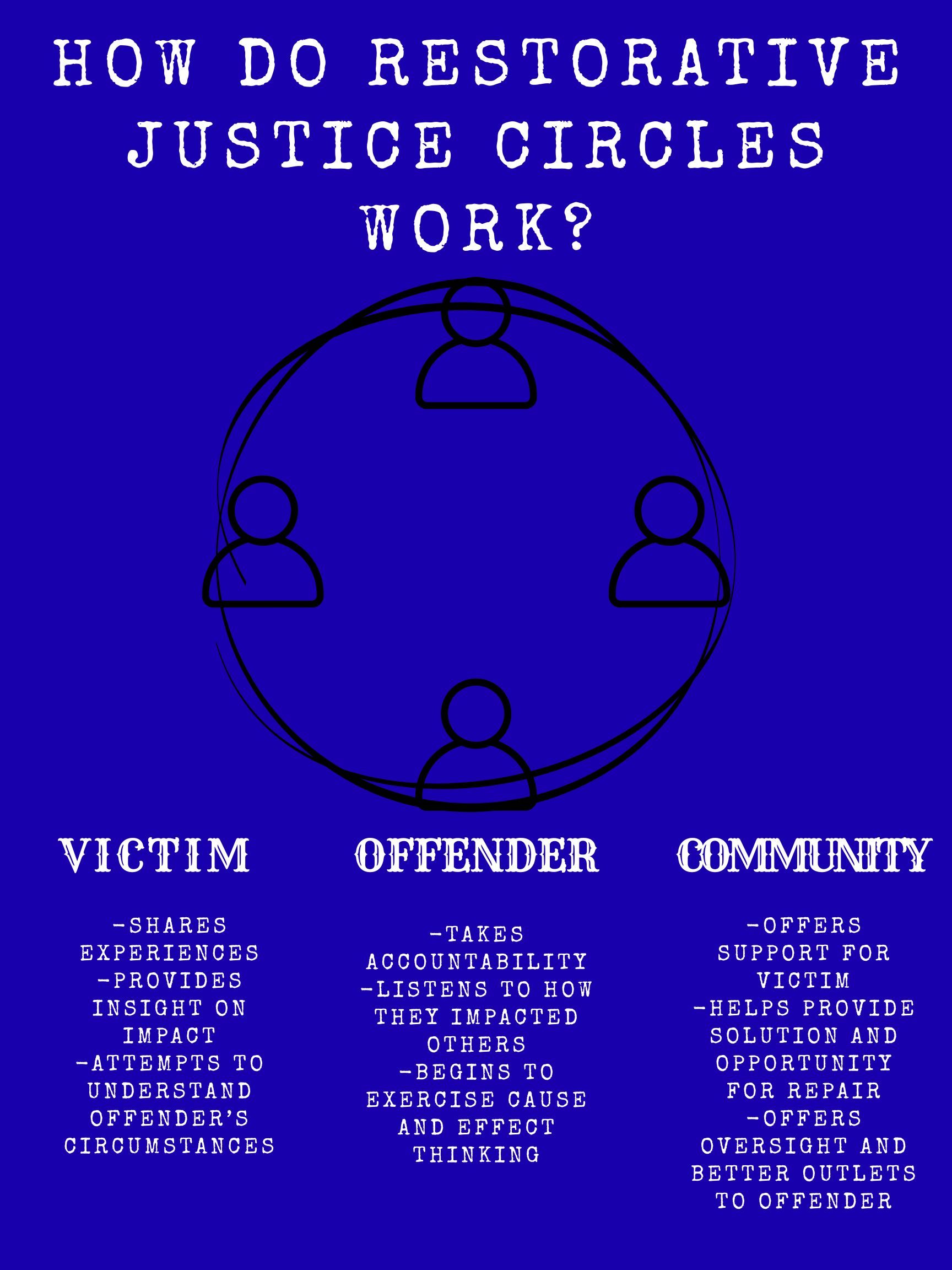What is restorative justice?
Restorative justice is an approach to addressing harm that emphasizes accountability, healing, and the repair of relationships rather than punishment. Historically, it draws on Indigenous traditions in Canada and around the world, where communities resolved conflicts through dialogue, consensus, and reintegration rather than exclusion. In Canada, the Royal Canadian Mounted Police (RCMP) began incorporating restorative justice processes in the 1990s as part of diversion programs, particularly for youth and first-time offenders, offering an alternative to formal court proceedings. These processes typically involve facilitated circles or conferences where those responsible for harm, those impacted, and community members discuss what happened, its effects, and how to make things right.
Today, restorative justice is applied not only in the criminal justice system but also in workplaces, communities, and schools. In educational settings, it can be used to address conflicts between students, bullying, or behavioral issues. This process focuses on accountability and relationship repair rather than suspension or expulsion. By integrating restorative practices, schools can foster a culture of empathy, responsibility, and community connection, making discipline a tool for growth instead of exclusion.

In the legal sense, restorative justice differs from formal court systems as there is more room and flexibility to take highly contextual aspects of each case and tailor solutions to help repair the harm that was caused. This process takes into account what the victim or affected parties would like to see happen to make things right, and focuses on the root problems that have led to offending and try to offer solution as to reduce the likelihood of reoffending. While restorative justice often leads to more meaningful outcomes for all involved parties, it can be more labour intensive, requiring more oversight, than other forms of justice. Simply, restorative justice seeks to repair while formal institutions have a stronger focus on punishment. Restorative process requires a high level of participation and sense of accountability from the offender, which means not every criminal matter is suitable for restorative justice, and in cases where the offender is unwilling to engage, traditional punitive measures are likely to be more appropriate.
A matter does not need to be criminal in nature to be suitable for restorative justice. Any situation where there is harm, conflict, or community unease can be an opportunity for restorative justice to take place.

CDRJS:
CDRJS is a not-for-profit society that has formally provided restorative justice services to Cranbrook and surrounding areas since 2007. We are a charitable organization operating under the Province of British Columbia's Victim Services Community Programs Unit and our facilitators are certified through Division "E" of the RCMP. We work directly with community members to find solutions to conflict or harm. Our dedicated team holds unique skills and education to best deliver these services to our communities.

